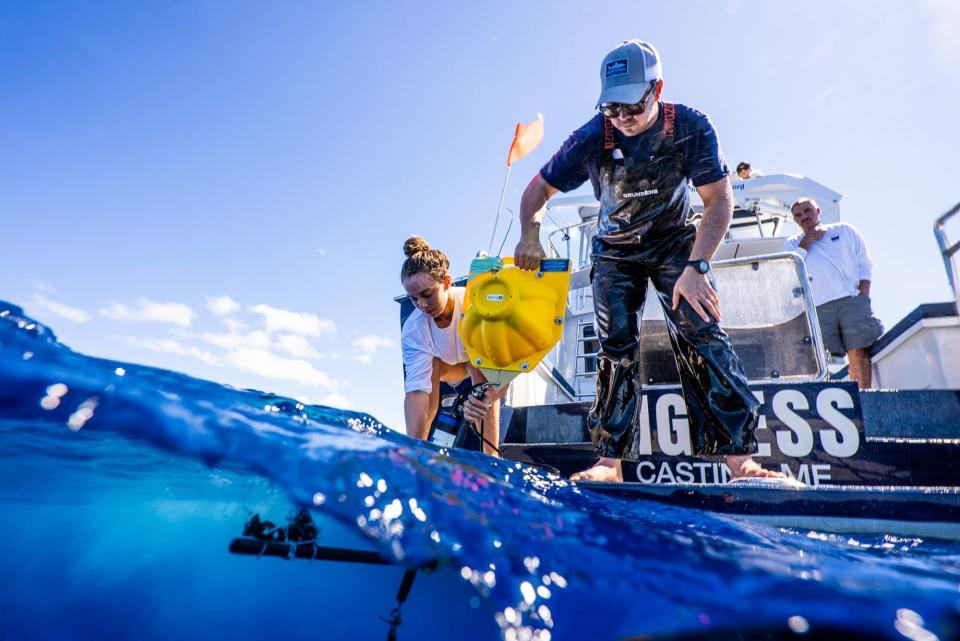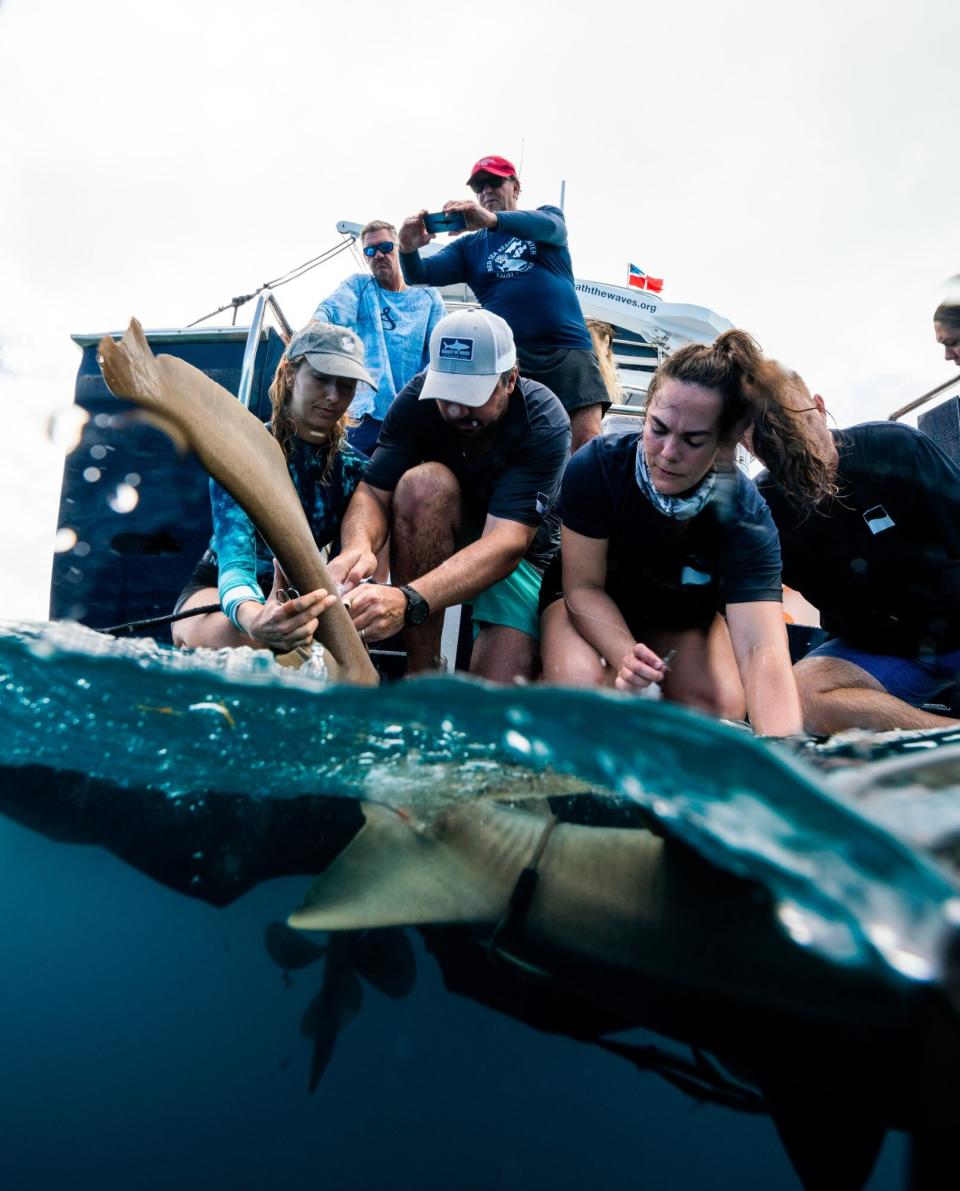5 Ways to Be Proactive About Protecting the Oceans in Light of 'Mass Extinction' Climate Change Predictions

Courtesy Beneath The Waves
You might have already been feeling some generalized existential dread about climate change even before the report in Science was published in late April saying that our oceans face "a mass extinction event" unless humans work rapidly to counteract the damage that pollution and carbon emissions are doing.
If emissions continue to rise, the report said, it's predicted that we could experience an event similar to the "Great Dying" 252 million years ago — in which around 95% of ocean species and 70% of land species went extinct, according to Britannica — by 2300.
Feeling like things are hopelessly bleak? Dr. Austin Gallagher, who you may recognize from his appearances on Discovery's Shark Week, has some ideas on how you can be an individual contributor to helping stem this massive climate catastrophe. Gallagher, who with his Beneath the Waves foundation has launched a partnership with Southern Tide that gives back to his ocean conservancy mission, shares his top tips on helping the oceans and the life they sustain.
First, Dr. Gallagher says, there's not much we can do to undo the damage we've already done. And it's clear that individual actions alone can't reverse the tide, so to speak; much of the change must be done on a governmental and corporate level. But we can all work together to "restore the ocean to abundance" by taking steps to improve our ocean-affecting behavior.
"While individuals can't save the world, our individual actions do add up — and our consumer behavior can influence big changes in policy and business practices," he says.

Courtsey Beneath The Waves
Below, in his own words, are some individual actions we can take to "restore the ocean to abundance."
Harvesting wisely and eating sustainably caught seafood. When possible, always try to eat seafood that is sourced locally. when this isn't possible, pay attention to labels! There are also great alternative protein options being developed every day.
Protecting seagrass and mangroves, which naturally absorb and store atmospheric carbon and protect shorelines from storms. In coastal areas, you can do this by being a responsible boater or landowner. Don't drop your anchor in areas with heavy seagrass, and maintain mangroves or marshes at the edge of your waterfront properties. Support local conservation organizations and government efforts in your area.
Support businesses that have clear and defensible environmental goals. It's up to individuals to do our own research on the businesses we support ... and corporations might not always be transparent with their business practices. Look for "Carbon Neutral" or "Climate Neutral" certifications, upcycled or recycled materials and supply chain transparency, buildings that are LEED-certified, and most of all, spend time getting to know the businesses you support! A great way to do this is to shop locally, and to check out helpful resources like these.
Invest in technologies that remove carbon from our atmosphere. A lot of climate scientists and policymakers have seen that just switching to alternative energy is not enough to mitigate global warming. There is a big focus in the technology and energy sectors to develop new, innovative technology that actually removes carbon from the atmosphere, which, along with using non-fossil fuel energy, could be more impactful.
Find ways to reduce our carbon footprint, from transportation to food choices to energy use. Walking or biking is a great way to lower your own carbon footprint; even if this change is only a few days a week, it makes a difference in your impact. Get your produce locally when possible — supporting farmer's markets, local markets — to reduce the distance (and fuel spent) that your food travels. And look for ways to cut down on your plastic consumption wherever possible; plastic is made from fossil fuels, and when it breaks down, it turns into microplastics that pollute our waterways and ultimately end up in our ocean and fishes, and back into our bodies, too.
Though it can be tempting to be pessimistic when faced with the enormity of the problem, Gallagher advises "ocean optimism" and advocating for creative solutions.
"Ocean health and human health are intrinsically connected," he says. "In many cases, the solutions for saving our oceans are in front of us, and new research is showing us which habitats and species should be protected with the maximum benefits."

 Yahoo Finance
Yahoo Finance 